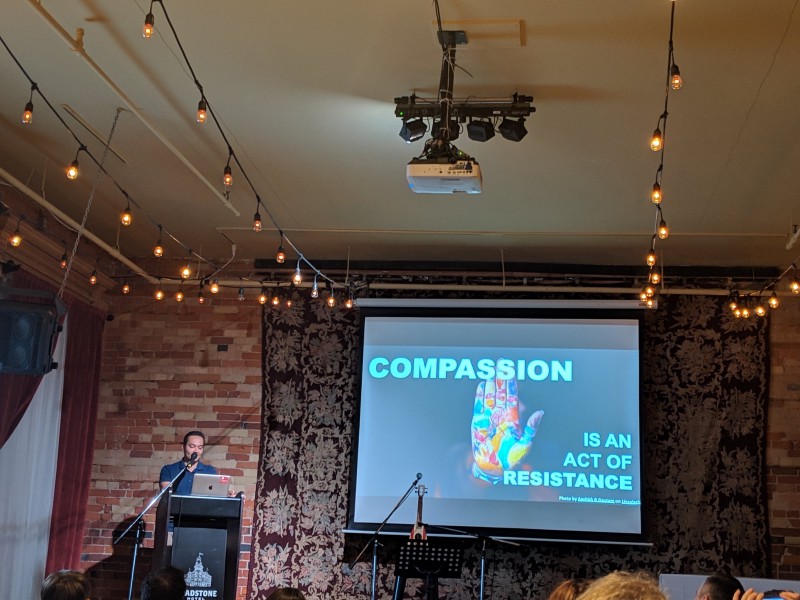
A couple of weeks ago, during Open education week, I was fortunate enough to sit on a panel to discuss the role of open educational resources (OER) in trades education. In the past year, I have become an evangelist for OER in the trades. It is a philosophy that has resonated strongly with me and something that is deeply affecting my practice and my life. I have written a few times on my thoughts(here, here, and here). As it often does, when discussing OER, the conversation turned to open educational practices (OEP). OEP is not so easy to define. The closest definition I could find that would start to scratch the surface was:
They (OEP) are represented in teaching techniques that draw upon open technologies and high-quality open educational resources (OER) in order to facilitate collaborative and flexible learning.
(Wikipedia, open educational practices)
After the session, a colleague came up and asked, “I totally get what you’re saying about engaging your students with the co-creation, renewable assignments, and self-assessment. What I want to know is how you plan on incorporating all of this into a condensed 10-week course?”
I teach two courses per year, a 24-week entry level course that leaves lots of time for trying out new methods and practices and a 10-week apprenticeship level course. This is 10 weeks and there is very little room for improvisation. This means that I have to get an immense amount of information to the students in a short amount of time. While I have some flexibility in how I teach the content, I have no flexibility in what content I am teaching.
“To be honest,” I told him “I haven’t quite figured that out yet”
This question has been hanging over my head for the past couple of weeks. I have just started a new 10-week course and I’ve been struggling with how to incorporate OEP into my course.
You’ve got mail
Just yesterday I received an email from a previous student:
Hey Chad,
I just wanted to say thank you and explain why I’m as glad as I am that you ended up being my teacher.
Earlier this year my wife of 4 years decided she didn’t want the life we had built together, so we separated. I’m not at all happy about it. Since then I’ve struggled to remain focused enough to be at all productive.
When school was coming up, I thought about dropping it and taking some time away to sort out my head. Instead, I decided to give it a try and if I couldn’t concentrate enough to pass, so be it. But I think that if the class wasn’t as interactive as it was, I would have burnt out right in the beginning. I know that I wouldn’t have had it in me to spend hours in the park pouring over the notes if I wasn’t able to listen or do the work in class. Instead, all the jokes, all the random tangents and musings, and “weird” assignments were just what I needed to pull my wandering mind back and scrape together brief windows of concentration. I felt safe in your class and when you asked how things were going, I honestly felt like you cared.
Connor (Not his real name)
I had no idea that Connor (Not his real name) was dealing with any of this. Yet he showed up day after day. Engaging with me and his fellow students. Asking questions, writing tests, learning.
I really struggled with sharing this for a couple of reasons:
- I don’t mean to come across like I am the guru of compassion. I am far from it. I make mistakes all the time. I make snap judgements on character. I complain about my students. I get frustrated on a daily/hourly/minutely (is that even a word?) basis.
- I struggled with how this fits in with the whole idea of open educational practices.
I realize that this is bigger than me and it has everything to do with open educational practices and open pedagogy. First a quick definition of open pedagogy:
Open pedagogy — a component of OERs — places the student at the center of that learning process in a more engaging, collaborative learning environment in order to achieve social justice in the community.
Montgomery College.
Our educational practices HAVE to begin with the students. In fact, I am even reluctant to call this part of an open educational practice.
Shouldn’t this be just part of the human experience?
So what?
For me, this realization is a fundamental shift in how I set up my day. Yes, I do have subject matter that needs addressing. I have a curriculum that must be followed, information that must be shared.
More importantly, I have students, each one of them in their own stories, their own struggles, their own lives outside of my classroom. By setting that as my filter for each day, what effect will that have on them? To be honest I wonder what effect that will have on me?
I don’t have all the answers. Trust me this is new territory for myself as well.
At the end of the day, it boils down to me asking; Do I want my students leaving my classroom at the end of the day having a better understanding of the subject matter or do I want them leaving feeling a little bit better about themselves?
What would it mean for them to walk out the door knowing that there is at least one person in their life that has got their back and genuinely cares about them?
Shared by:

Sorry, but comments are not enabled on this site.